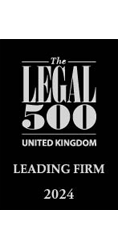This article discusses the recent decision of the High Court in The RBS Rights Issue Litigation This is an important topic for anyone who may instruct lawyers or their in-house team and want to ensure that opponents in litigation will not be able to obtain copies of the documents created for that purpose before the litigation was commenced. Background The case concerns proceedings issued by shareholders of RBS to recover investment losses which they incurred as a result of the bank’s collapse in 2008, on the grounds that the prospectus was inaccurate or incomplete. On 8 December 2016, the Court was faced with an application for specific disclosure of two categories of documents, both of which were notes of interviews with employees and ex-employees of RBS as part of two internal investigations. The interviews were mostly conducted by external US lawyers instructed by RBS and some were carried out by agents acting for its external lawyers. The categories of documents for disclosure included: (Collectively the “Interview Notes”) RBS submitted that the Interview Notes were privileged and should not be disclosed because they were protected by legal advice privilege; or alternatively they were privileged lawyers’ working papers. Legal Advice Privilege Legal advice privilege attaches to communications between a client and its lawyer for the purpose of giving and receiving legal advice. RBS argued that the Interview Notes recorded “a communication between a lawyer and a person authorised by RBS to give instructions to its lawyers” and were created for the purpose of enabling RBS to seek legal advice from its external counsel. They said that these communications should therefore be privileged. The Court rejected RBS’s claim for protection of the Interview Notes under legal advice privilege. Hidyard J held: “the client for the purposes of privilege consists only of those employees authorised to seek and receive legal advice from the lawyer” The fact that RBS had “authorised” some of its employees to communicate with its lawyer did not mean that the employees were the client, as it was merely a gathering of information which is no different to the gathering of information from third parties. This was so despite the fact that the information was being gathered to enable RBS’s lawyers to provide legal advice, so RBS’s claim to legal advice privilege failed. Lawyers’ Working Papers Privilege It has often been thought that all lawyers’ working papers are privileged under the legal professional privilege doctrine. RBS’s other argument to avoid disclosure and inspection was that the Interview Notes were privileged on this basis. RBS submitted that the Interview Notes were not verbatim transcripts and were prepared by lawyers, which involved some selection by the lawyers of what they considered relevant to record. It was argued that those notes “evidence the impressions of the lawyer with a view to advising the client” and “they revealed the lawyers’ train of inquiry”. This was not sufficient however to satisfy the Court that the Interview Notes were privileged. The Court found that the evidence produced by RBS did not substantiate the claim to lawyers’ working papers privilege. Hildyard J concluded that there is a real difference between reflecting a “train of inquiry” and reflecting or giving a clue as to the trend of legal advice. The Interview Notes were the former. This defence to disclosure also therefore failed. Conclusion In light of the most recent guidance from the Court it is always wise to consider the issue of privilege at the outset of any investigation and remind both the client and any legal adviser that merely communicating with their lawyer will not always result in the documents created becoming privileged. Companies should identify which employees within the organisation are authorised to give instructions and receive advice and keep a record of this. It will be necessary to take a realistic and analytical approach to this – simply designating all employees is unlikely to help and might lead to the Court rejecting the evidence of who is really authorized. In order to attract legal advice privilege, the communication must be between a client and its lawyer for the purpose of giving and receiving legal advice and it must disclose a clue as to the actual advice provided. Information gathering will not suffice.
Some comfort can be gleaned from the fact that once litigation appears likely any communication that is legitimately in contemplation of litigation, will attract litigation privilege, remains unaffected. However, given the potentially serious ramifications this is a matter that anyone who regularly instructs lawyers should be aware of.
[2016] EWHC 3161 (Ch), in which it was held that communications with lawyers and working papers prepared by clients and their lawyers (whether in house or external) for the purposes of obtaining and giving legal advice, will not necessarily be privileged from disclosure if litigation ensues. This was of course a further restatement of the law in Three Rivers.






